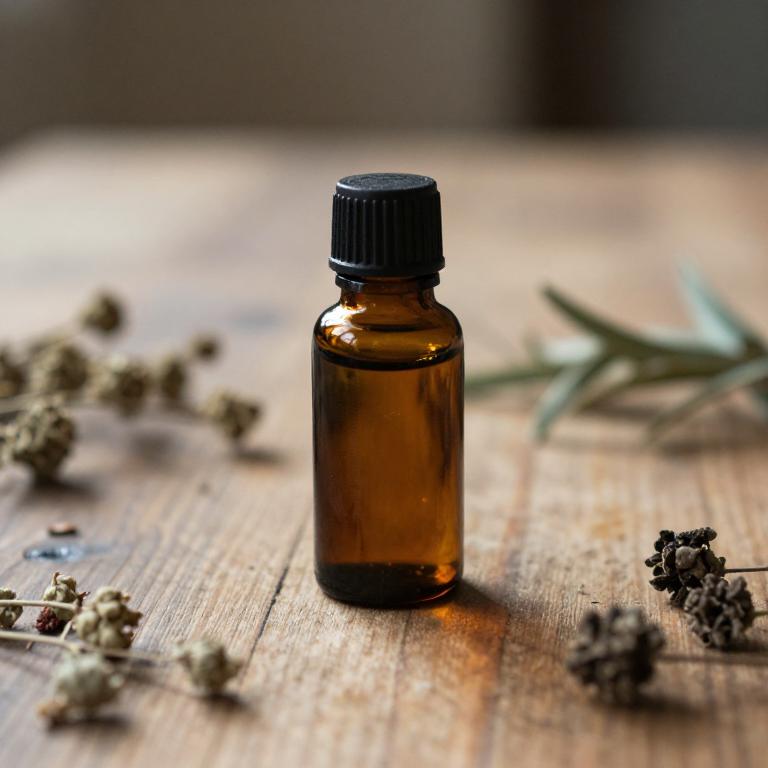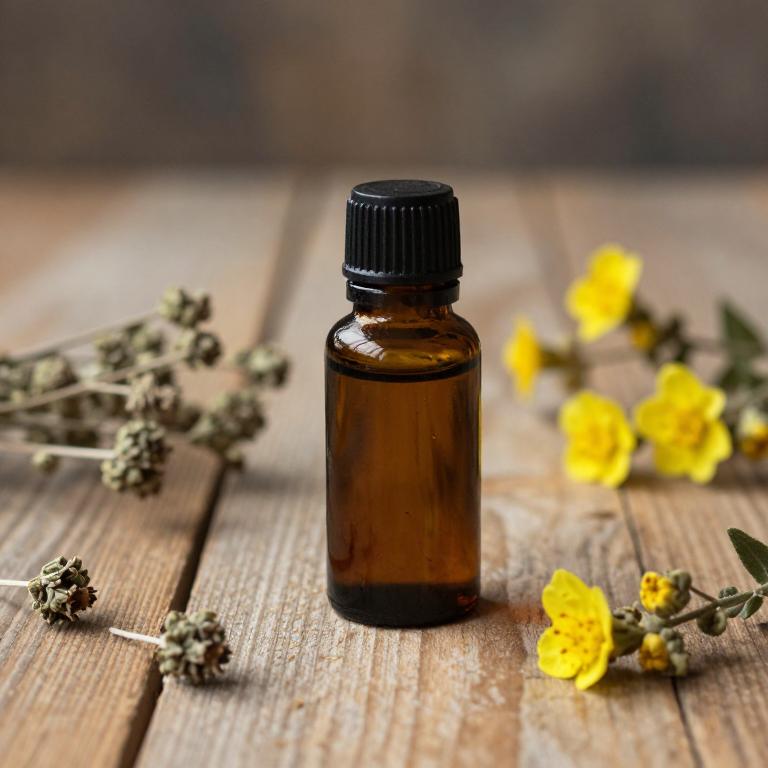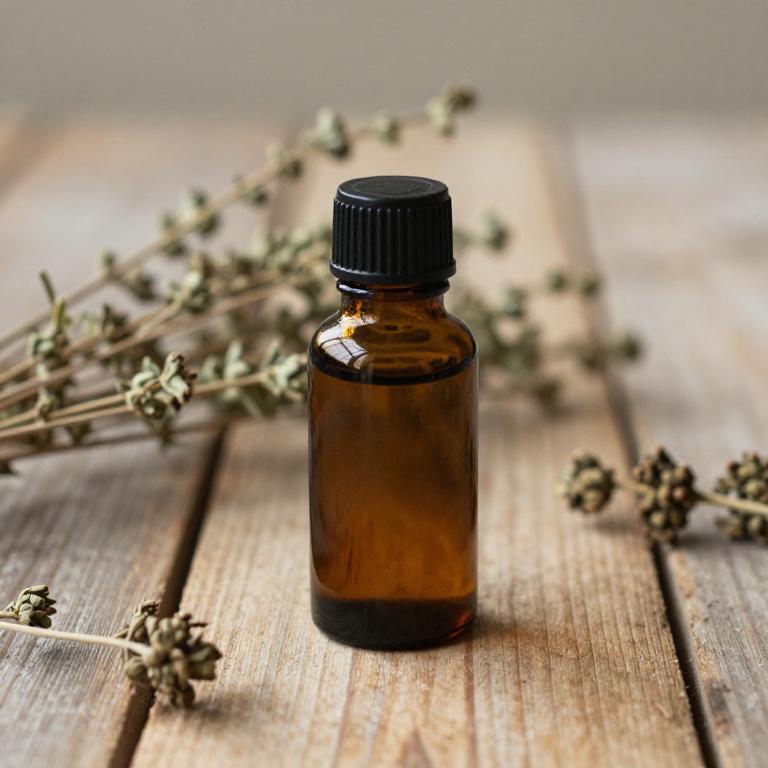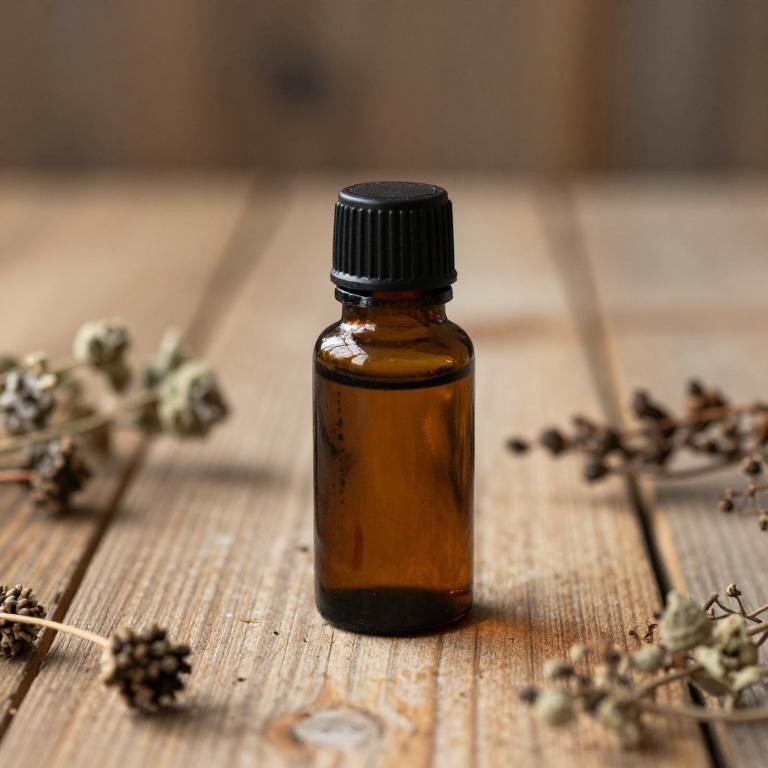10 Best Herbal Essential Oils For Lice

Herbal essential oils, such as lavender, tea tree, and neem, are commonly used as natural remedies for lice due to their antimicrobial and insecticidal properties.
These oils can help repel and eliminate lice by disrupting their life cycle and inhibiting their ability to cling to hair shafts. When diluted properly with a carrier oil, they can be safely applied to the scalp and hair to reduce infestation without the harsh side effects of chemical treatments. However, it is important to note that while some studies suggest their effectiveness, they may not completely eradicate lice on their own and may require consistent application.
As a result, many individuals combine essential oils with combing techniques and other natural remedies for optimal results.
Table of Contents
- 1. Ceylon cinnamon (Cinnamomum zeylanicum)
- 2. Melaleuca (Melaleuca alternifolia)
- 3. English lavender (Lavandula angustifolia)
- 4. Eucalyptus (Eucalyptus globulus)
- 5. Lemon grass (Cymbopogon citratus)
- 6. Thyme (Thymus vulgaris)
- 7. Common teucrium (Teucrium marum)
- 8. Rosemary (Rosmarinus officinalis)
- 9. Oregano (Origanum vulgare)
- 10. Pogostemon (Pogostemon cablin)
1. Ceylon cinnamon (Cinnamomum zeylanicum)

Cinnamomum zeylanicum, commonly known as cinnamon, is a plant whose essential oil has been explored for its potential efficacy against lice.
The oil contains compounds such as cinnamaldehyde and eugenol, which possess natural insecticidal properties that may help in repelling or eliminating lice. Studies suggest that cinnamon essential oil can disrupt the nervous system of lice, leading to their paralysis and eventual death. It is often used in natural remedies for head lice due to its pleasant aroma and minimal risk of chemical resistance.
However, while it shows promise, it should be used with caution and may not be a standalone solution, requiring further research and validation for widespread use.
2. Melaleuca (Melaleuca alternifolia)

Melaleuca alternifolia, commonly known as tea tree oil, is a popular essential oil derived from the leaves of the Melaleuca alternifolia plant, native to Australia.
It is widely recognized for its antimicrobial, antifungal, and antiparasitic properties, making it a natural alternative for treating lice infestations. When diluted properly, tea tree oil can be applied to the scalp to help eliminate head lice and their eggs, owing to its ability to disrupt the cellular structure of the lice. However, it is important to use it in a safe concentration to avoid skin irritation, as undiluted essential oils can be harsh on the scalp.
While it may not be a guaranteed solution for all cases, tea tree oil is often recommended as a complementary treatment alongside mechanical removal methods for lice.
3. English lavender (Lavandula angustifolia)

Lavandula angustifolia, commonly known as English lavender, is a widely used herb in aromatherapy and natural remedies, including those for lice.
Its essential oil is derived through steam distillation of the flowering tops and contains compounds such as linalool and linalyl acetate, which are known for their calming and antiparasitic properties. While lavender oil is not a guaranteed solution for lice, some studies suggest it may help repel or kill lice due to its insecticidal effects. It is often used in combination with other essential oils like tea tree or neem for enhanced effectiveness.
However, it is important to use lavender oil cautiously, as it can cause skin irritation in some individuals, and it should not replace professional treatments for severe infestations.
4. Eucalyptus (Eucalyptus globulus)

Eucalyptus globulus, also known as the Australian eucalyptus, is a popular source of essential oil used in natural remedies for lice treatment.
The oil contains potent compounds like cineole and terpinen-4-ol, which have demonstrated insecticidal properties against head lice. When diluted properly, eucalyptus globulus essential oil can be applied topically to the scalp to help repel and eliminate lice infestations. It is often used in combination with other essential oils such as tea tree or lavender to enhance its effectiveness.
However, it is important to consult a healthcare professional before using essential oils, especially on children, to ensure safety and proper application.
5. Lemon grass (Cymbopogon citratus)

Cymbopogon citratus, commonly known as lemon grass, is a herb widely used in traditional medicine for its aromatic and therapeutic properties.
Its essential oil, extracted through steam distillation, contains compounds such as citral, myrcene, and geraniol, which have demonstrated insecticidal effects against lice. Studies suggest that the oil may disrupt the nervous system of lice, leading to paralysis and eventual death. Due to its natural composition, it is considered a safer alternative to synthetic lice treatments.
However, further research is needed to establish its efficacy and optimal application methods for effective lice management.
6. Thyme (Thymus vulgaris)

Thymus vulgaris, commonly known as common thyme, is a herb that has been traditionally used for its potent essential oils, which contain compounds like thymol and carvacrol, known for their antimicrobial and antiparasitic properties.
These essential oils have shown effectiveness in combating lice due to their ability to disrupt the exoskeleton of the parasite and inhibit their reproduction. When applied topically, thymus vulgaris essential oil can help eliminate both adult lice and their eggs, making it a natural alternative to chemical-based treatments. However, it should be diluted with a carrier oil to avoid skin irritation and used with caution, especially on children.
Overall, thymus vulgaris essential oil offers a safe and effective natural remedy for managing lice infestations when used properly.
7. Common teucrium (Teucrium marum)

Teucrium marum, commonly known as germander, contains essential oils that have been traditionally used for their antiparasitic properties, including efficacy against lice.
The essential oils derived from this plant contain compounds such as thymol and carvacrol, which exhibit strong insecticidal and repellent effects. These oils can be applied topically to the scalp to help eliminate head lice and their eggs, offering a natural alternative to chemical treatments. However, it is important to use these oils with caution, as they may cause skin irritation if not properly diluted.
While preliminary research suggests potential benefits, further studies are needed to confirm their effectiveness and safety for long-term use in lice treatment.
8. Rosemary (Rosmarinus officinalis)

Rosmarinus officinalis, commonly known as rosemary, is a herbal plant whose essential oil has been traditionally used for its aromatic and therapeutic properties.
The essential oil of rosemary contains compounds such as camphor, pinene, and cineole, which are known for their antifungal and antimicrobial effects. While it is not a primary treatment for lice, some studies suggest that rosemary oil may help repel lice due to its strong aromatic properties and potential insecticidal effects. When used in combination with other lice treatments, rosemary essential oil can serve as a natural complementary remedy.
However, it is important to consult a healthcare professional before using essential oils, as they can be potent and may cause skin irritation in some individuals.
9. Oregano (Origanum vulgare)

Oreganum vulgare, commonly known as oregano, is a herb widely used in traditional medicine for its potent essential oils.
The essential oils derived from oregano, particularly those containing high levels of carvacrol and thymol, exhibit strong antimicrobial and antiparasitic properties. These compounds have been studied for their potential effectiveness against head lice, as they can disrupt the exoskeleton of the lice and inhibit their survival. Some natural remedies and commercial products incorporate oregano essential oil as a safe and effective alternative to chemical-based lice treatments.
However, it is important to use these oils with caution, as they can be irritating to the skin and should be diluted properly before application.
10. Pogostemon (Pogostemon cablin)

Pogostemon cablin, also known as lemongrass, is a tropical herb commonly used in aromatherapy and traditional medicine for its refreshing and uplifting properties.
Its essential oil is derived through steam distillation and is known for its strong citrusy and herbal aroma. While primarily used for its calming and digestive benefits, some sources suggest that pogostemon cablin essential oil may have potential as a natural remedy for lice due to its antimicrobial and insect-repelling properties. However, there is limited scientific evidence supporting its efficacy against lice, and it is not typically recommended as a primary treatment.
For effective lice removal, it is advisable to consult a healthcare professional and use proven methods such as medicated shampoos or combing techniques.